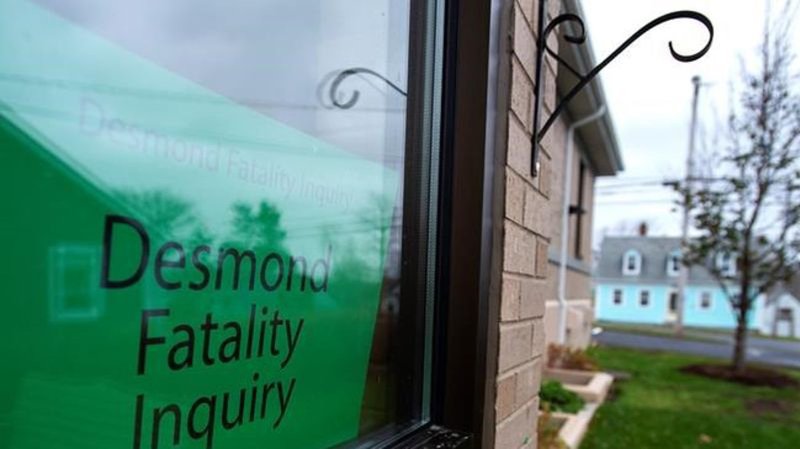
Desmond inquiry: expert says red flags for domestic violence were ignored, overlooked
PORT HAWKESBURY, N.S. — A domestic violence expert says the tragic case of a former soldier in Nova Scotia who killed his family and himself in 2017 was predictable and preventable, based on a review that revealed many red flags were ignored or overlooked.
Dr. Peter Jaffe, a psychologist at Western University in London, Ont., shared his grim findings today before a provincial inquiry that is investigating why Afghanistan war veteran Lionel Desmond fatally shot his mother, wife, daughter and himself almost five years ago.
The inquiry has focused much of its attention on Desmond’s long struggle with post-traumatic stress disorder, but it has also been tasked with determining whether his family had access to domestic violence intervention services and whether the health-care providers who interacted with them were properly trained.
Jaffe’s report says Desmond presented 20 risk factors associated with domestic homicide, out of 41 factors developed by the Ontario Domestic Violence Death Review Committee.


